وراثت و آزمایش مندل
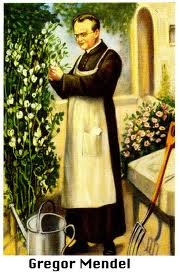
فایل صوتی موجود نیست
Heredity and Mendel’s Experiments
For thousands of years, people have understood that many characteristics of plants or animals are transmitted from parent to offspring. Because of this understanding, farmers have been able to create better varieties of crops and livestock, by allowing the reproduction of only those individuals that have the desired characteristics. As a result, we now have domestic plants and animals that provide us with much more food than their wild ancestors ever did. But even though people have long possessed some vague appreciation for the principles of heredity, it has only been since the late 19th century that a systematic understanding of those principles has been gained.
The first scientist to discover the laws of heredity was an Austrian monk, Johann Gregor Mendel. Mendel’s investigations of heredity made use of the pea plant. He studied several characteristics of peas that are transmitted by heredity, such as the color of the peas (green versus yellow), the texture of the peas (smooth versus wrinkled), and the height of the plant (tall versus short). Mendel studied heredity by first finding plants that had shown the same characteristic for several generations?that is, plants that were “pure-bred” for certain traits.
He then crossed, or hybridized, pairs of pea plants that had different colors, different textures, and different heights. Mendel found that the offspring of these crossings did not show characteristics intermediate between those of the parents, but instead resembled only one of the parents, with respect to a particular characteristic. For example, when yellow pea plants and green pea plants were crossed, all of the offspring had yellow peas.
In this sense, the yellow color is said to be dominant, and the green color is said to be recessive. Mendel also found that the recessive characteristics could re-emerge in later generations. When he crossed different hybridized plants, he found that one-quarter of these second-generation offspring would show the recessive trait, such as the green color. From these results, Mendel deduced that traits are transmitted by discrete particles. (Nowadays, these are called “genes”.) For a given characteristic, an offspring inherits two of these, one from each parent. If the offspring inherits different genes from each parent, then one of the genes is “dominant” over the other, and the dominant trait emerges in the offspring. However, the recessive trait may emerge in a later generation.
Mendel also found that different characteristics are inherited independently. For example, the inheritance of color (green versus yellow) did not depend on the inheritance of texture (smooth versus wrinkled). Each characteristic, such as color or texture, was inherited separately, without influence due to any other characteristic. As a result, any combination of color and texture could occur. Mendel’s work was published in 1866, but it was ignored by other scientists until about 1900, when other scientists independently re-discovered Mendel’s findings, and brought attention to his work.
When scientists began studying heredity more widely, they noticed many cases that were exceptions to Mendel’s rules. For example, there are cases in which two or more different kinds of characteristics tend to be inherited together. Nevertheless, Mendel’s basic principles provided the first insight into the mechanisms of heredity, and his work is recognized as the beginning of the scientific study of genetics.
transmit

source 1
to pass something from one person to another
Synonym: transfer
transmit something sexually transmitted diseases
transmit something to somebody Parents can unwittingly transmit their own fears to their children.
source 2
to send or pass something from one person, place or thing to another
transmit something (from somebody/something) to somebody/something Mathematical knowledge is transmitted from teacher to student.
offspring
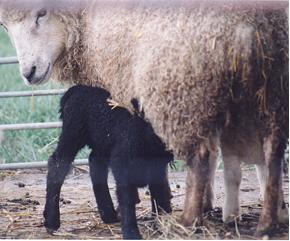
source 1
a child of a particular person or couple
the problems parents have with their teenage offspring
to produce/raise offspring
source 2
1 someone’s child or children – often used humorously:
a young mother trying to control her offspring
2 an animal’s baby or babies:
a lion and its offspring
livestock
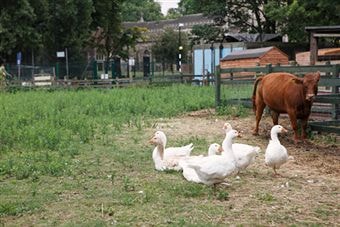
source 1
the animals kept on a farm, for example cows or sheep
source 2
animals such as cows and sheep that are kept on a farm
possess
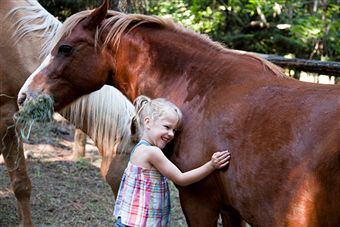
source 1
to have or own something
He was charged with possessing a shotgun without a licence.
I’m afraid this is the only suitcase I possess.
The gallery possesses a number of the artist’s early works.
Belgium was the first European country to possess a fully fledged rail network.
source 2
1 formal to have a particular quality or ability:
Different workers possess different skills.
He no longer possessed the power to frighten her.
! In spoken English it is much more usual to use have or have got:
He has a lot of talent.
2 formal or law to have or own something:
Neither of them possessed a credit card.
Campbell was found guilty of possessing heroin.
vague

source 1
not having or giving enough information or details about something
She’s a little vague about her plans for next year.
The politicians made vague promises about tax cuts.
He was accused of being deliberately vague.
We had only a vague description of the attacker.
He outlined the policy in vague terms.
source 2
unclear because someone does not give enough detailed information or does not say exactly what they mean:
The governor gave only a vague outline of his tax plan.
vague about Julia was vague about where she had been and what she had been doing.
appreciationsource 1
full or sympathetic understanding of something, such as a situation or a problem, and of what it involves
I had no appreciation of the problems they faced.
source 2
an understanding of the importance or meaning of something
appreciation of a realistic appreciation of the situation
heredity

source 1
the process by which mental and physical characteristics are passed by parents to their children; these characteristics in a particular person
the debate over the effects of heredity and environment
source 2
the process by which mental and physical qualities are passed from a parent to a child before the child is born [↪ genetics]
pea
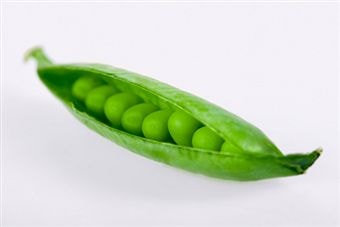
a small round green seed, eaten as a vegetable. Several peas grow together inside a long thin pod on a climbing plant also called a pea
frozen peas
pea soup
versus

source 1
used to show that two teams or sides are against each other
It is France versus Brazil in the final.
in the case of the State versus Ford
source 2
used to show that two people or teams are competing against each other in a game or court case:
the New York Knicks versus the LA Lakers
the Supreme Court decision in Roe vs. Wade
texture
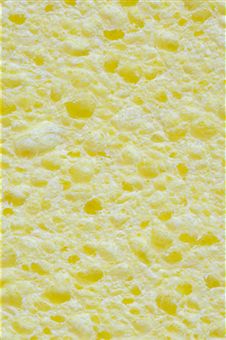
source 1
the way food or drink tastes or feels in your mouth, for example whether it is rough, smooth, light, heavy, etc
The two cheeses were very different in both taste and texture.
source 2
the way a surface or material feels when you touch it, especially how smooth or rough it is
smooth/silky/rough etc texture the smooth texture of silk
a designer who experiments with different colours and textures
wrinkle
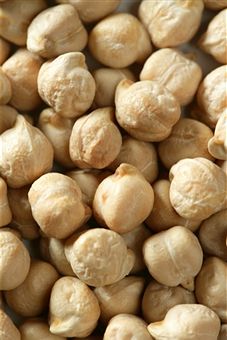
source 1
to form raised folds or lines in an untidy way; to make something do this
Her stockings were wrinkling at the knees.
source 2
wrinkledskin or cloth that is wrinkled has small lines or folds in it:
her wrinkled old face
pure-bred
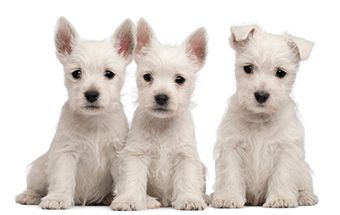
born from parents of the same breed, not from a mix of two or more breeds
hybridizesource 1
if an animal or a plant hybridizes or is hybridized with an animal or a plant of another species, they join together to produce a hybrid
source 2
to form a new type of plant or animal from two existing types, so that the new type has some qualities from each of the other types
intermediate

source 1
located between two places, things, states, etc
an intermediate stage/step in a process
intermediate between A and B Liquid crystals are considered to be intermediate between liquid and solid
source 2
an intermediate stage in a process of development is between two other stages:
an intermediate stage during which the disease is dormant
recessivesource 1
a recessive physical characteristic only appears in a child if it has two genes for this characteristic, one from each parent. It does not appear if a dominant gene is also present.
source 2
a recessive gene is passed to children from their parents only if both parents have the gene [≠ dominant]
trait
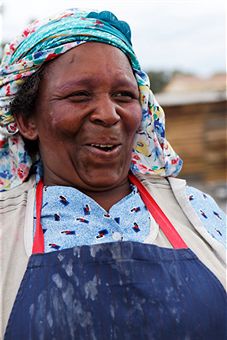
source 1
particular quality in your personality
personality traits
Awareness of class is a typically British trait.
source 2
a particular quality in someone’s character
personality/character traits a mental illness associated with particular personality traits
genetic/inherited traits
deduce

source 1
to form an opinion about something based on the information or evidence that is available
Synonym: infer
deduce something (from something) We can deduce a lot from what people choose to buy.
deduce (from something) that, what, how, etc… Can we deduce from your silence that you do not approve?
source 2
to use the knowledge and information you have in order to understand something or form an opinion about it
deduce that From her son’s age, I deduced that her husband must be at least 60.
deduce from
What did Darwin deduce from the presence of these species?
discrete

source 1
independent of other things of the same type
Synonym: separate
The organisms can be divided into discrete categories
source 2
clearly separate:
The change happens in a series of discrete steps.